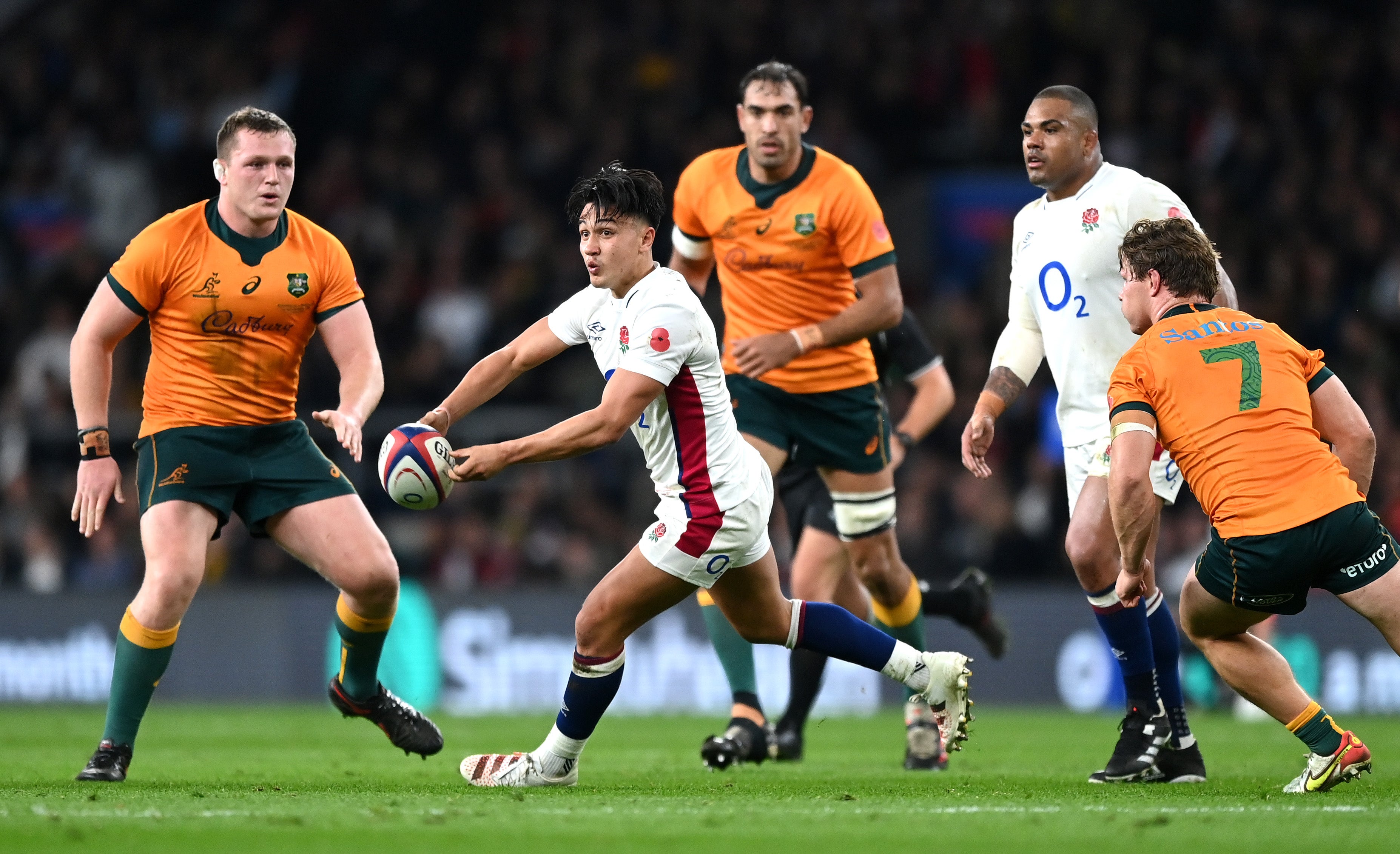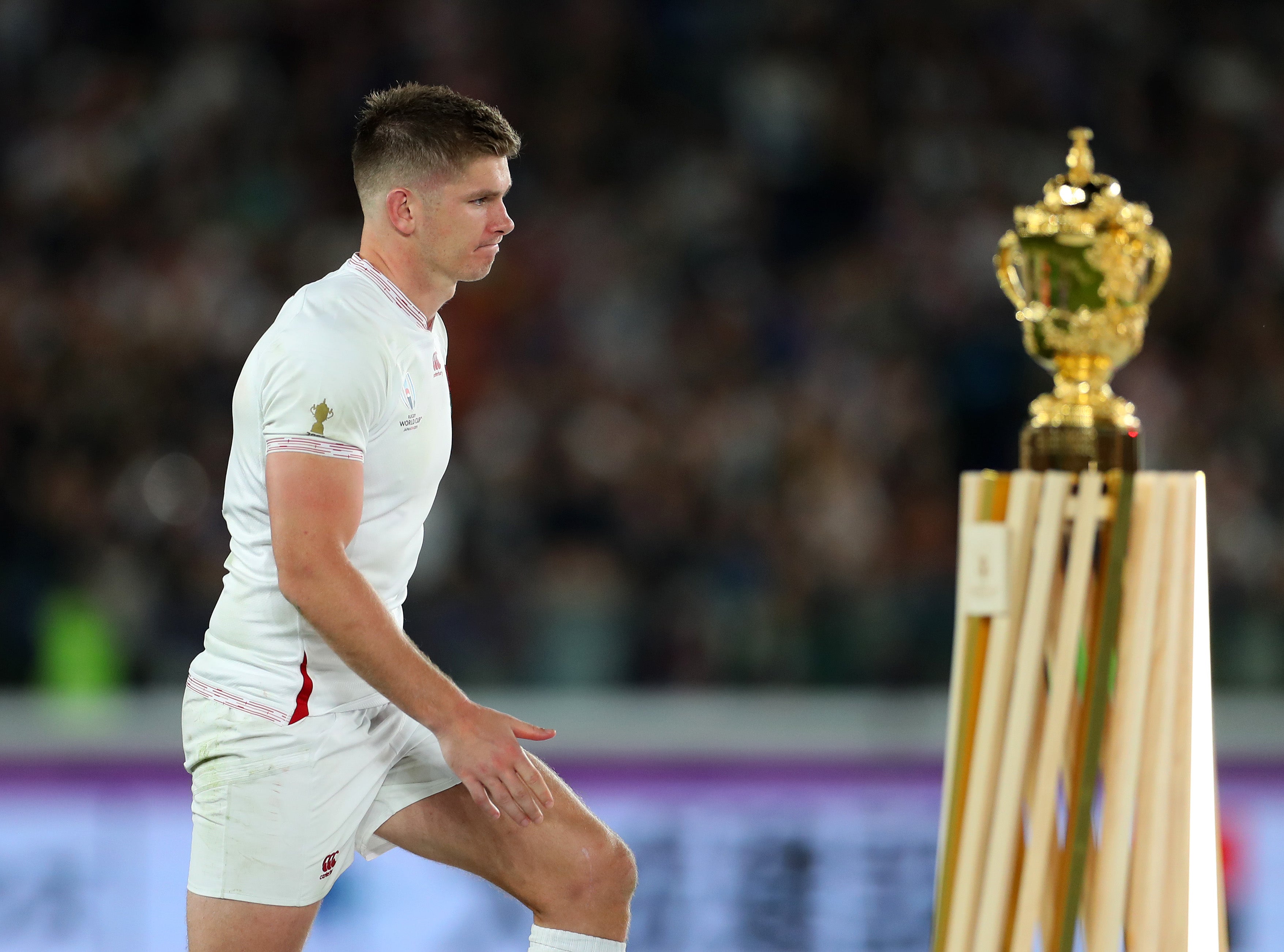England’s disjointed win over Australia fails to hide their flaws as South Africa loom
Eddie Jones’s side secured a solid but unspectacular win against the Wallabies, but the Springboks will present a much sterner challenge

Your support helps us to tell the story
From reproductive rights to climate change to Big Tech, The Independent is on the ground when the story is developing. Whether it's investigating the financials of Elon Musk's pro-Trump PAC or producing our latest documentary, 'The A Word', which shines a light on the American women fighting for reproductive rights, we know how important it is to parse out the facts from the messaging.
At such a critical moment in US history, we need reporters on the ground. Your donation allows us to keep sending journalists to speak to both sides of the story.
The Independent is trusted by Americans across the entire political spectrum. And unlike many other quality news outlets, we choose not to lock Americans out of our reporting and analysis with paywalls. We believe quality journalism should be available to everyone, paid for by those who can afford it.
Your support makes all the difference.Sam Simmonds gathered, Jamie Blamire sprinted away and Twickenham could finally celebrate. The facts of the scoreboard will show that victory, in the end, was comfortable enough for England but the fans filed out into the night without particularly vivid or fond recollections to take with them of a Cook Cup clash that never quite got going.
Blamire’s final-minute romp home, continuing the Newcastle hooker’s remarkable run of scoring in every England appearance so far, added a final coating of gloss to the hosts’ victory over Australia but the encounter rather failed to match the sparkling wonder of the spectacular light show that prefaced it.
It was a game that existed in a state of strange ennui, punctuated and punctured by Jaco Peyper’s whistle; the Wallabies always within touching distance but never truly looking like they would be able to win it. Twenty-seven penalties, 18 of which were against the visitors, took the sting out of a sloppy contest that desperately lacked continuity. Australia coach Dave Rennie lamented his side’s ill-discipline and inaccuracy at full-time, feeling that his players never gathered any momentum in a curious, matte encounter.
Meanwhile, Eddie Jones said: “We predicted more of a free-flowing game, but it turned out to be a heavy penalty game and I was pleased how we fought through it. We had to battle really hard and I was really pleased with the attitude of the players.”
After another disrupted week of preparation, Jones had promised that an avant garde England backline would attack as an “ensemble”, and his side at times made sweet music, particularly early on, but at other moments looked all in a muddle as the band swapped instruments.
Jones’s mad midfield chemistry and England’s experiments were good for a passing mark but little more. Having been picked in the No 14 shirt, Manu Tuilagi popped up virtually everywhere but the right wing. Henry Slade was more commonly sighted in the backfield, with Tuilagi roaming. It worked on occasion, and England were generally safe under the high ball – Tuilagi tellingly misjudged the sole kick-off that tumbled down upon him – but there were also times when England themselves looked unsure of who was supposed to be where.

Perhaps this is the sort of fluid, position-less future that Jones has long predicted, with the supposedly “archaic” numbers on the back of his players’ shirts taking on a purely administrative function. There were some moments of skill and invention from England, but in the opposition red area they lacked the clinical edge to put a game they largely controlled out of sight.
“We’re developing our own style of play at the moment and developing it to the strengths of the new group of players,” Jones explained of England’s attacking performance. “We have got a new team at the moment, a developing team, and we are working out how we are going to play to our strengths most effectively.
“There were a couple of times we missed slight opportunities, where if we were a bit straighter in the way we came around the corner then we could have scored a couple more tries.
“We were really delighted in the way that the players firstly accepted the way we want to play differently and, secondly, our execution levels are still a long way away from where we want them to be, but they are moving in the right direction.”
There were some encouraging scintillas with Farrell at first receiver and Marcus Smith picking holes behind, most prominently when the latter put Freddie Steward in with a delightfully delayed pass for the full-back’s canter to the line. Yet given Smith’s tricks in tight spaces, it was a surprise not to see him involved more regularly at the line. Until the England captain limped off late on, it was tough to shake the feeling that this remains Farrell’s operation.
Most encouraging for England might have been the performance of the assured, calming Steward. The milliner may be able to make a head start on a collection of caps that look certain to come, such is the ease with which the 20-year-old full-back has taken to international rugby.
Jones believes South Africa will prove trickier to deal with. Jacques Nienaber’s side will challenge England’s chosen back three more consistently than Australia with their kicking and chasing game, while if England wish to again have Smith arcing at second receiver then he may well find himself suffocated by the Springboks’ constricting outside blitz defence.

There will also be the memories of the World Cup final defeat with which to contend. England were left flat on their backs in Tokyo, short of intensity having dethroned the All Blacks the week prior. Jones admitted in his book My Life and Rugby that he was wrong to go with a playmaking axis of George Ford and Farrell against the Springboks. With the England captain likely to be fit, and a temptation to play more directly, Jones’s midfield could again be shuffled.
“South Africa have a very clear plan, based on the accuracy of their kick and kick-chase, based on the physicality of their forwards around the ruck, and a very strong scrum.
“We are going to have to play differently to beat them, because if you are taking on a heavyweight contest and you are fighting against George Foreman, who can whack and whack and whack and whack, you have to do something a bit different. We have got four days to come up with something. And we will.”
Jones has a certain predilection for a cross-sport metaphor, but a week out from a first meeting with the Springboks since that final defeat, the Australian might have inadvertently settled upon a cautionary tale – despite a shift in approach from Joe Frazier for his second fight with the fearsome Foreman, “Smokin’ Joe” lost the rematch, too.
Join our commenting forum
Join thought-provoking conversations, follow other Independent readers and see their replies
Comments